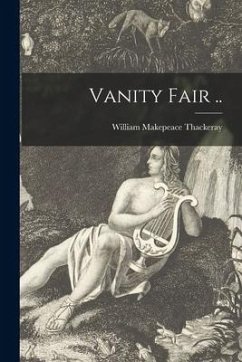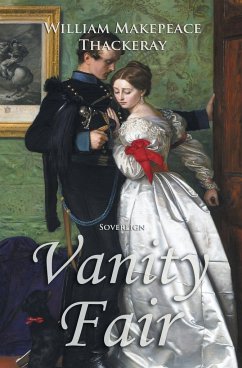
Vanity Fair
Versandkostenfrei!
Versandfertig in 1-2 Wochen
27,99 €
inkl. MwSt.

PAYBACK Punkte
14 °P sammeln!
Vanity Fair follows the fortunes of two contrasting but inter-linked lives. A ruthless social climber, Becky Sharp is scheming and deceitful. Orphaned when young, she has desired wealth and social security above everything. Engaged as a governess at Sir Pitt Crawley's house, Becky secretly marries his son, Captain Rawdon Crawley. Wealthy and warm-hearted, Amelia Sedley is her complete opposite. All that she has ever longed for is the stunning and egotistic Captain George Osborne - her childhood sweetheart - whom she marries against her father's wishes. As the lives of the two women unfold agai...
Vanity Fair follows the fortunes of two contrasting but inter-linked lives. A ruthless social climber, Becky Sharp is scheming and deceitful. Orphaned when young, she has desired wealth and social security above everything. Engaged as a governess at Sir Pitt Crawley's house, Becky secretly marries his son, Captain Rawdon Crawley. Wealthy and warm-hearted, Amelia Sedley is her complete opposite. All that she has ever longed for is the stunning and egotistic Captain George Osborne - her childhood sweetheart - whom she marries against her father's wishes. As the lives of the two women unfold against the backdrop of the Battle of Waterloo, what does fate has in store for them ?














